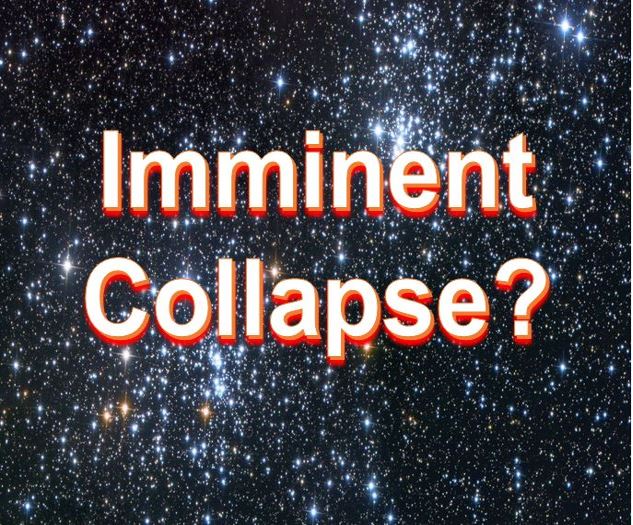According to a new study, our galaxy, other galaxies and the whole Universe will collapse completely soon, that is, soon in astronomical terms, which means within the next tens of billions of years. The Universe will continue expanding, then stop and start collapsing in on itself, eventually destroying itself completely.
If the scientists, from the UK and US are right about their theory, it could help explain the presence of dark energy and why the Universe is expanding at an accelerated rate.
Prof. Antonio Padilla, who works at the University of Nottingham, and Nemanja Kaloper from the University of California, Davis, explain that dark energy is an enigmatic force that we know exists because of its gravitational force, but cannot see.

If Kaloper and Padilla are right, the end of the Universe won’t happen during our lifetime, or for the next several billion years.
Nobody knows what dark energy is – it is a theoretical form of energy believed to act in opposition to gravity and to occupy the entire universe, accounting for most of the energy in it and causing its expansion to accelerate.
An impending doom
In an interview with Phys.org, Prof. Padilla said:
“The fact that we are seeing dark energy now could be taken as an indication of impending doom, and we are trying to look at the data to put some figures on the end date.”
“Early indications suggest the collapse will kick in in a few tens of billions of years, but we have yet to properly verify this.”
He says their proposed mechanism behind the collapse of the Universe helps solve some of the mysteries of physics, including the cosmological constant problem.
This is Albert Einstein’s idea of a value of the energy density of the vacuum of space as an addition to his theory of general relativity to “hold back gravity”, to explain why the Universe was not collapsing.
However, in 1998 cosmology passed a major milestone when astrophysicists said the Universe was expanding at an accelerating pace.
Consequently, the cosmological constant was given a non-zero value, with many believing this expansion was the sign of an impending collapse.
Today’s non-zero value is too large
However, the predicted vacuum energy density of the Universe driving the expansion is much bigger than what is observed. The researchers say the current non-zero value is too large.
Padilla and Kaloper, in a previous study reported last year in iO9, reformulated general relativity so that the cosmological constant equaled the historical average of the Universe’s matter energy density.
In their latest study, the astrophysicists concluded that the Universe will continue expanding for several billion years, and then start collapsing on itself, i.e. shrinking – what they call a “big crunch”.
In an interview with the Mail, Prof. Kalper said:
“Since observed masses are not zero and are inversely proportional to this quantity, it cannot be infinite. Ergo the lifetime of the universe must be finite in a consistent cosmological model which explains a tiny value of vacuum energy and finite particle masses.”
“This must be accounted for by a special dynamics, that implies existence of a sector which arrests expansion and turns it into collapse. Very surprisingly, this predicts that the onset of collapse is immediately preceded by a period of late cosmic acceleration – as we now observe.”
Video – Prof. Padilla talks about his recent work

